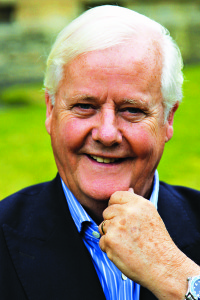An interview with Os Guinness, whom I had the privilege of working for in Washington, DC, for ten formative years of my life (starting when I was an intern with the Williamsburg Charter Foundation, many a year ago). Os is simply brilliant, but he’s also funny, caring, and deeply passionate about the transformation of people and society. He’s one of the greats.
 Os Guinness is a writer, speaker and social critic who is the author or editor of over 30 books. The great-great-great grandson of Arthur Guinness, the Dublin brewer, he’s an Englishman who has lived in America for over 30 years.
Os Guinness is a writer, speaker and social critic who is the author or editor of over 30 books. The great-great-great grandson of Arthur Guinness, the Dublin brewer, he’s an Englishman who has lived in America for over 30 years.
In the last 50 years many countries in the West have grown more secular in public life and more diverse in the private world. Thus fewer people understand “Christian language,” and fewer are interested in what we are saying. So to reach them, we have to be persuasive, which is why I’ve written Fool’s Talk. Jesus never talked to two people in the same way, and nor must we. St Paul, for example, spoke differently when he addressed his fellow-Jews in the synagogue and when he spoke to Athenian philosophers at the Areopagus.
Jesus spoke straightforwardly to his disciples because they were open to him – though they often misunderstood him. But when he spoke to the crowds, and especially to the scribes, Pharisees and Sadducees, they were closed to him and his teaching. So he switched to stories and parables that were far more subversive and challenged them to see his point – despite themselves! One of the deepest and most persuasive ways we can talk is to ask questions, and that is something we can all do – ask questions that make people think about what they believe and the problems in their faith if they thought more. Then they become more open to the gospel.
The sociologist Peter Berger describes a “signal of transcendence” as an experience that is so deep and challenging that it punctures what people used to believe and points to something that needs to be true if their experience and longings will be satisfied. Perhaps the example most Christians know best is how CS Lewis, as an atheist, was “surprised by joy.” In setting out to follow the signal of joy, he abandoned his atheism as unsatisfactory and eventually came to know the Lord.
 CS Lewis was brilliant in both reasoned argument and in highly imaginative story telling. Like many others, I came to faith through reading Mere Christianity, and I have always loved his imaginative works such as The Screwtape Letters and The Chronicles of Narnia. Some of his collected essays are remarkable too.
CS Lewis was brilliant in both reasoned argument and in highly imaginative story telling. Like many others, I came to faith through reading Mere Christianity, and I have always loved his imaginative works such as The Screwtape Letters and The Chronicles of Narnia. Some of his collected essays are remarkable too.
The Call is my bestselling book, and the one that triggers the greatest response. People appreciate how it encourages Christians to see their place in the whole of life as God’s calling. Being a mother, a teacher, a lawyer or a taxi driver can be just as much part of God’s calling as being a minister or missionary.
Being born in the brutal realities of World War II in China and witnessing the beginning of the Communist era, my story is quite dramatic up to the age of ten, and then not that different from many other Western lives after that – though my time at L’Abri with Francis and Edith Schaeffer in the late Sixties was dramatic! If I write a memoir, it will not be because I think my life is that important, but because we need to recover the sense of “handing on well” today. The craziness of modern views of generations makes a healthy view of tradition harder than ever, and we Christians should be passionate about both tradition and renewal.
Leave a Reply